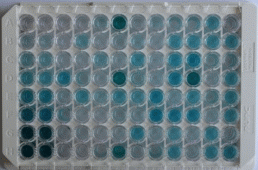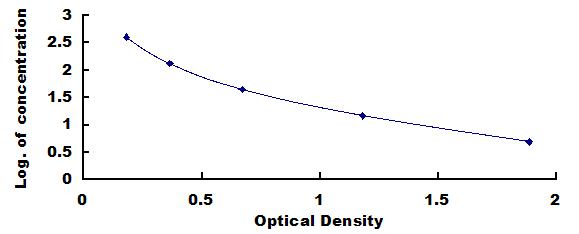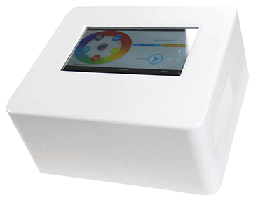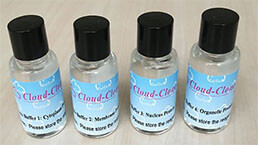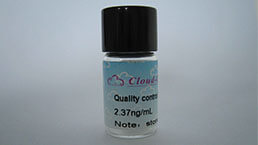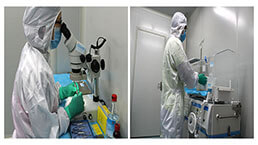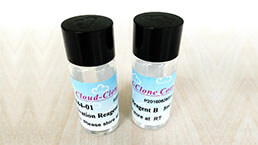Packages (Simulation)

Reagent Preparation

Image (I)
Image (II)
Certificate


High Sensitive ELISA Kit for Neurofilament, Light Polypeptide (NEFL)
CMT1F; CMT2E; NF-L; NF68; NFL; 68 kDa neurofilament protein; Neurofilament triplet L protein
- Product No.HEE038Mu
- Organism SpeciesMus musculus (Mouse) Same name, Different species.
- Sample TypeSerum, plasma, cerebrospinal fluid and other biological fluids
- Test MethodCompetitive Inhibition
- Assay Length3h
- Detection Range4.94-400pg/mL
- SensitivityThe minimum detectable dose of this kit is typically less than 1.87pg/mL.
- DownloadInstruction Manual
- UOM 48T96T 96T*5 96T*10 96T*100
- FOB
US$ 554
US$ 792
US$ 3564
US$ 6732
US$ 55440
For more details, please contact local distributors!
Specificity
This assay has high sensitivity and excellent specificity for detection of High Sensitive Neurofilament, Light Polypeptide (NEFL).
No significant cross-reactivity or interference between High Sensitive Neurofilament, Light Polypeptide (NEFL) and analogues was observed.
Recovery
Matrices listed below were spiked with certain level of recombinant High Sensitive Neurofilament, Light Polypeptide (NEFL) and the recovery rates were calculated by comparing the measured value to the expected amount of High Sensitive Neurofilament, Light Polypeptide (NEFL) in samples.
| Matrix | Recovery range (%) | Average(%) |
| serum(n=5) | 81-96 | 91 |
| EDTA plasma(n=5) | 94-105 | 102 |
| heparin plasma(n=5) | 78-98 | 87 |
Precision
Intra-assay Precision (Precision within an assay): 3 samples with low, middle and high level High Sensitive Neurofilament, Light Polypeptide (NEFL) were tested 20 times on one plate, respectively.
Inter-assay Precision (Precision between assays): 3 samples with low, middle and high level High Sensitive Neurofilament, Light Polypeptide (NEFL) were tested on 3 different plates, 8 replicates in each plate.
CV(%) = SD/meanX100
Intra-Assay: CV<10%
Inter-Assay: CV<12%
Linearity
The linearity of the kit was assayed by testing samples spiked with appropriate concentration of High Sensitive Neurofilament, Light Polypeptide (NEFL) and their serial dilutions. The results were demonstrated by the percentage of calculated concentration to the expected.
| Sample | 1:2 | 1:4 | 1:8 | 1:16 |
| serum(n=5) | 99-105% | 83-97% | 93-103% | 94-102% |
| EDTA plasma(n=5) | 82-103% | 81-96% | 79-95% | 82-102% |
| heparin plasma(n=5) | 94-102% | 87-96% | 92-101% | 90-97% |
Stability
The stability of kit is determined by the loss rate of activity. The loss rate of this kit is less than 5% within the expiration date under appropriate storage condition.
To minimize extra influence on the performance, operation procedures and lab conditions, especially room temperature, air humidity, incubator temperature should be strictly controlled. It is also strongly suggested that the whole assay is performed by the same operator from the beginning to the end.
Reagents and materials provided
| Reagents | Quantity | Reagents | Quantity |
| Pre-coated, ready to use 96-well strip plate | 1 | Plate sealer for 96 wells | 4 |
| Standard | 2 | Standard Diluent | 1×20mL |
| Detection Reagent A | 1×120µL | Assay Diluent A | 1×12mL |
| Detection Reagent B | 1×120µL | Assay Diluent B | 1×12mL |
| TMB Substrate | 1×9mL | Stop Solution | 1×6mL |
| Wash Buffer (30 × concentrate) | 1×20mL | Instruction manual | 1 |
Assay procedure summary
1. Prepare all reagents, samples and standards;
2. Add 50µL standard or sample to each well.
And then add 50µL prepared Detection Reagent A immediately.
Shake and mix. Incubate 1 hour at 37°C;
3. Aspirate and wash 3 times;
4. Add 100µL prepared Detection Reagent B. Incubate 30 minutes at 37°C;
5. Aspirate and wash 5 times;
6. Add 90µL Substrate Solution. Incubate 10-20 minutes at 37°C;
7. Add 50µL Stop Solution. Read at 450 nm immediately.
GIVEAWAYS
INCREMENT SERVICES
| Magazine | Citations |
| Acta Neurologica Scandinavica | Effect of carotid endarterectomy on brain damage markers Pubmed:27126899 |
| Acta Neurologica Scandinavica | Effect of carotid endarterectomy on brain damage markers. pubmed:27126899 |
| journal of neuroimmunology | Cytokines and biological markers in autoimmune GFAP astrocytopathy: The potential role for pathogenesis and therapeutic implications Pubmed: 31254929 |
| Cerebellum | Neurofilament Light Chain Is a Biomarker of Neurodegeneration in Ataxia Telangiectasia 33893614 |
| Medicine (Baltimore) | Phase 1b dose-escalation, safety, and pharmacokinetic study of IC14, a monoclonal antibody against CD14, for the treatment of amyotrophic lateral sclerosis 34678870 |
| J Clin Med | Fatty Acid-Binding Protein 7 (FABP-7), Glutamic Acid and Neurofilament Light Chain (NFL) as Potential Markers of Neurodegenerative Disorders in Psoriatic Patients … Pubmed:35566558 |

